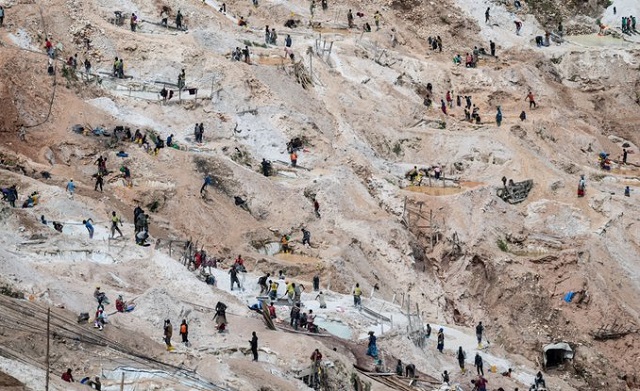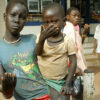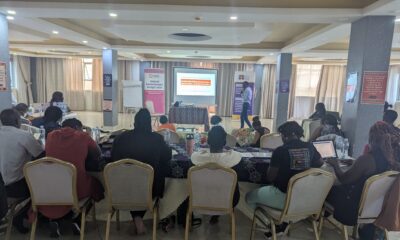News Feature
Over 20 Dead After Coltan Mine Collapse in Eastern Congo
At least 21 people have been confirmed dead following a catastrophic collapse at a coltan mine in Rubaya, Masisi territory of North Kivu Province, the Democratic Republic of the Congo (DRC), local authorities reported Friday.
The tragedy struck on Thursday at one of the world’s most vital sources of coltan, a mineral critical to global electronics and defence industries. The mine, currently under the control of the M23 rebel group, collapsed during ongoing extraction activities, triggering panic and a large-scale rescue operation.
“The current toll remains provisional as rescue efforts have been underway since yesterday. Several individuals are still buried, but emergency teams are working relentlessly at the site to save those showing signs of life,” a local official told Xinhua from Rubaya.
Ongoing Rescue Efforts
As of Friday morning, at least 100 people had been rescued from the rubble, but the fate of several others remains unknown. Authorities have not yet determined the cause of the collapse, and rescue operations are expected to continue through the weekend.
“We plan to provide another update later this afternoon, depending on how the situation evolves,” the official added.
Rubaya is globally significant due to its vast deposits of coltan, a mineral from which tantalum is extracted. Tantalum is indispensable in the manufacturing of smartphones, military hardware, and medical implants.
According to the United Nations, the Rubaya mines account for over 15 per cent of the world’s tantalum supply, making it a geopolitical hotspot and a magnet for artisanal miners seeking economic survival amid insecurity.
The mining site hosts both open-pit and underground operations and draws thousands of miners daily, despite the absence of formal safety regulations and mounting security risks under rebel occupation.
Since April 2024, the area has been under the control of the March 23 Movement (M23), a rebel group accused of human rights violations and destabilising much of North and South Kivu provinces. Their resurgence has intensified the region’s insecurity and further complicated efforts to formalise and regulate mining operations.
Artisanal mining in the DRC, while vital to millions of livelihoods, is fraught with danger. Frequent collapses, child labour, and a lack of protective infrastructure are persistent hazards, worsened by the absence of state oversight in areas controlled by armed groups.
The tragedy underscores the global human cost behind essential electronics and renews scrutiny on ethical sourcing and corporate supply chains tied to Congolese minerals.
International organisations and human rights groups have repeatedly urged tech companies and manufacturers to ensure traceability and support reforms in conflict-affected mining regions.
As rescue operations continue and the death toll could still rise, pressure mounts on both Congolese authorities and the global community to improve mining safety and accountability in the DRC’s volatile east.
Comments



























